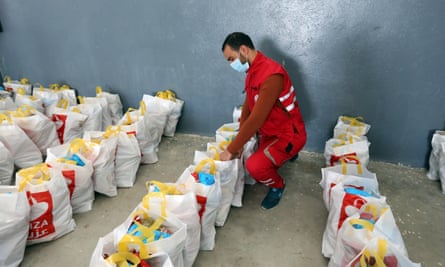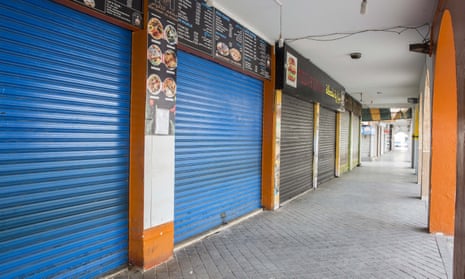From 6pm to 6am, the security services enforce the curfew. Like most other countries in the world, Tunisia remains in lockdown.
At all other times, tight restrictions on public movement are in place to limit the spread of coronavirus. Across the country, many businesses are shuttered up, with employees preparing themselves for the long and potentially economically devastating wait until something like normal life returns to the country.
Partway through the initial lockdown, protests erupted in some of the poorer neighbourhoods near the capital, Tunis, as the strain of the lockdown began to tell on people already accustomed to surviving on the bare minimum.
For the country’s migrant population, mostly from sub-Saharan Africa, the threat posed by Covid-19 is especially acute. In Wardia, near the capital, the 56 migrants housed in one of the country’s reception and orientation centres went on hunger strike over the lack of protection they feel they have been afforded.
However, for irregular migrants who have made their way to the country’s southern reaches, living within the community and deprived of the casual labour many rely on for essentials such as food and rent, the lockdown is proving critical.
“It’s not easy,” Lamine Dakumi, 25, from Guinea-Bissau, says over an uncertain phone connection from the coastal town of Zarzis, near Libya. He is one of several hundred migrants in Tunisia’s south.
Dakumi and his wife entered Tunisia through Libya four months ago. Now his wife is sick (not with coronavirus, he stresses). He has not worked on the construction sites that provided their living for a month. “The landlord comes for the rent,” he says, “and I have to say we have no money, nothing.”
Measures to slow the virus’s spread were introduced relatively early in Tunisia. The curfew was announced in mid-March, after just 29 cases of the virus had been confirmed, and reinforced measures already in place, which included closure of the country’s borders and restrictions on many public gatherings. The initial two-week lockdown, imposed three days later on 20 March, was later extended to 19 April.

The measures appear to be working. So far, the virus has yet to spread widely in Tunisia. At the time of writing, there have been 23 deaths and 623 cases recorded, though testing remains scarce. However, the strain upon the country’s poorest, and its migrant population in particular, is sorely felt.
Willy Moaboulou, 33, came to Tunisia with his wife in August 2018, leaving their two children behind in Cameroon. They had originally planned to travel on to Europe but, after an unsuccessful attempt during which their boat became overwhelmed at sea, they settled in Zarzis, where Willy found casual work as a mason. Since the lockdown was implemented, there has been no work. Moaboulou says he has no money for either food or rent.
“No one has called to offer help,” he says. “Neither the neighbours, nor the Tunisian government.”
Migrants to Tunisia’s south typically enter the country from Libya. After registering with the government, the most vulnerable are placed in designated migrant centres, while others find work and shelter in the region’s towns. Many are supported by a combination of international organisations, including the Red Crescent and the International Organization for Migration (IOM), until they can be persuaded to return voluntarily. However, others use the time to earn the money they need to pay smugglers who will hopefully carry them on towards Europe.

“The situation is very bad,” says Dr Mongi Slim, the head of the Red Crescent’s offices in Medenine. “The migrants rely upon the informal economy, working in construction for instance to support themselves. However, the lockdown has halted everything.
“They are contacting me all the time, asking for help. I wrote to the IOM, but haven’t heard anything back. In the meantime, they’re still coming. I give them what money I can, out of my own pocket. The communities where they live help too. They donate what food they can, but it’s not really enough.”
In written comments to the Guardian, the IOM said it had no record of Slim’s letter. However, the organisation said it was aware of the situation and was working to distribute vouchers exchangeable for food to the area’s most vulnerable.
According to the IOM’s figures, there are 350 vulnerable migrants living in the towns of Zarzis and Medenine, with a further 101 residing in IOM’s shelters in the area.
“Upon announcement of total containment in the country, we planned, [on] distributing vouchers for the most vulnerable,” wrote Wajdi Ben Mhamed, head of the IOM sub-office in Zarzis. “Following the data collection work we conducted through a deployed IOM staff in the south and in close collaboration with civil society and community leaders, these vouchers will be distributed this week.”
However, with the high prevalence of Covid-19 making Europe a less attractive proposition than it was, and the border with Libya closed, Tunisia’s migrants find themselves marooned in a country struggling to cope with a global crisis.
